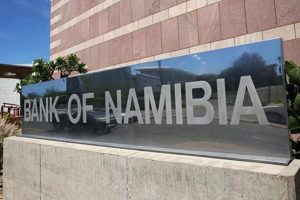
By: Mathias Hangala
South Africa officially exited the Financial Action Task Force (FATF)’s “Grey List” of jurisdictions under enhanced monitoring last Friday.
The attention is now focused on Namibia, which faces the daunting task of balancing international compliance and domestic aspirations.
South Africa was placed on the FATF Grey List in February 2023 after the watchdog identified weaknesses in the country’s efforts to prevent money laundering and terrorist financing. Danie Dörfling, Sustainability Lead and Senior Marketing Coordinator at Moore Infinity, regarded the exit after nearly two years as progress in the right direction.
Dörfling explained that being greylisted brings scrutiny to financial systems, often leading to job losses and increased costs for consumers. “South Africa is one of the costliest countries to send remittances abroad, and even though consumers bear the cost, exiting the list is a positive signal for the economy,” he said.
While being greylisted does not constitute sanctions, it serves as a warning to international investors, resulting in heightened due diligence requirements and increased compliance costs for banks and businesses. Though South Africa may regard the greylisting as a thing of the past, the nation anticipates another site visit in 2027 to oversee progress.
Since being added to the list, several South African institutions — including the National Treasury (NT), South African Reserve Bank (SARB), and Financial Intelligence Centre (FIC) — worked on 22 action items to address the identified deficiencies. By June 2025, FATF confirmed that South Africa had implemented all required reforms and conducted an on-site review to verify the improvements.
Following nearly three years of sustained efforts, FATF officially removed South Africa from the Grey List.
Headquartered in Paris, France, the FATF is a global watchdog that sets international standards to combat money laundering, terrorist financing, and proliferation financing.
Meanwhile, the South African Revenue Service (SARS) yesterday welcomed FATF’s decision to remove South Africa from its grey list. In a press release, SARS described the move as a significant milestone for the country and a testament to the collective efforts of government and its institutions to restore integrity to the financial system.
The agency noted that while the FATF’s initial greylisting in February 2023 reflected systemic weaknesses, SARS recognises that it, along with other key institutions, must continue playing a role in preventing future regression. Commissioner Edward Kieswetter emphasised that “the removal of the greylist designation is not a finish line, but a milestone on a long-term journey towards building a robust and resilient financial ecosystem.”
Implications for Namibia
Namibia was itself placed on the FATF Grey List in February 2024 due to “strategic deficiencies” in its anti-money laundering, counter-terrorist financing, and proliferation financing frameworks. According to Namibia’s Financial Intelligence Centre (FIC)’s recent report, the country has made notable progress, with a deadline of May 2026 to fully implement its action plan.
The report indicated that while Namibia has made “substantial progress,” it still falls short in six of the eleven immediate outcomes assessed on effectiveness. These outcomes measure not just the existence of laws and regulations, but also their practical implementation and the ability of the system to prevent financial crimes.
Analysts suggest that South Africa’s removal from the list will have minimal direct impact on Namibia’s economy. This is largely because the Namibian Dollar is pegged to the South African Rand, meaning exchange rates and cross-border financial flows remain closely tied.
Moreover, Namibia conducts high volumes of daily trade and financial transactions with South Africa, reducing the likelihood of considerable disruptions.
Therefore, South Africa’s successful exit offers a roadmap and motivation for Namibia to accelerate its own reforms being part of the Common Monetary Area (CMA). As both countries continue to strengthen their financial oversight systems, the region stands to benefit from improved investor confidence and reduced transactional costs.









